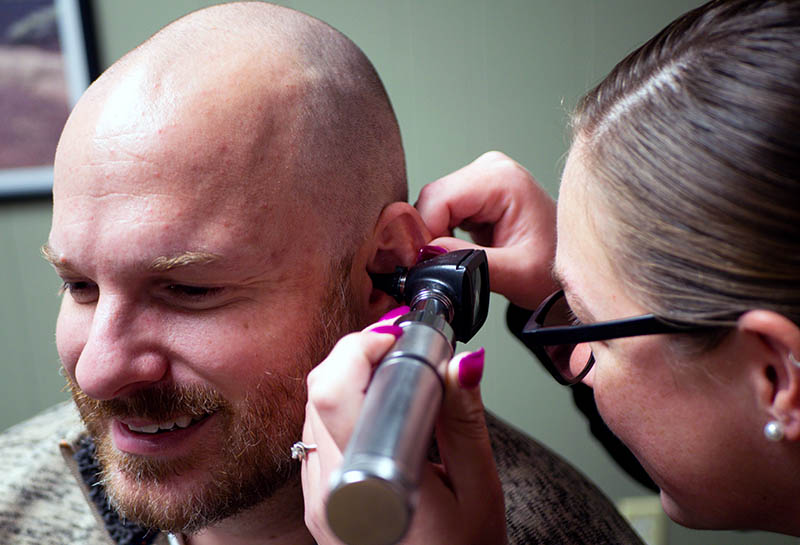
Hearing is an essential aspect of living unless you are born profoundly deaf. It enables you to communicate effectively with others, learn about your surroundings, and sense impending danger. Unfortunately, as we age, our capacity to hear well declines, along with other parts of our body. However, you don’t have to endure it. From in-ear hearing aids to cochlear implants, your doctor can provide treatments that help you overcome this challenge. Otolaryngologists offer quality hearing care and audiology services to address your diminishing hearing capacity. As hearing loss often occurs gradually, patients may overlook the need for medical treatment. But knowing when to see a doctor for hearing loss is crucial. For this reason, we have put together this informative guide to assist you.
Do I Need to See A Doctor About Hearing Loss?
The Ear
The ear consists of three major sections:
The outer ear:
When sound travels via the outer ear, it causes the eardrum to vibrate.
The middle ear:
The sound vibrations pass from the outer ear across three tiny bones in the middle ear.
Inner ear:
Sound waves travel through the cochlea, a snail-shaped structure in your ear. The tiny hairs on nerve cells within the cochlea convert these vibrations into electrical signals and send the signal to your brain. Your brain interprets these signals as sound.
The Causes of Hearing Decline
Hearing loss is caused by various factors, with aging being the most common: exposure to loud noises, such as playing music at high volumes. Unfortunately, hearing loss that results from noise exposure cannot be treated medically or surgically. Therefore, it is of utmost importance to safeguard your ears from loud noises to help prevent hearing loss.
Other causes of hearing loss include:
• Heredity
• Excessive earwax
• Certain medications
• Infections such as otitis media (excess fluid in the middle ear)
Medical conditions such as:
• Diabetes
• Meniere’s disease (excess fluid in the inner ear)
• Otosclerosis (bony growths in the middle ear, which prevent vibration)
Overall, understanding the causes of hearing loss and taking preventative measures is essential for maintaining good hearing health. By taking assertive steps to defend our ears, we can preserve our ability to hear and communicate effectively.
Delayed Treatment
Many people ignore hearing loss for an average of seven years due to denial, fear, or lack of significant impact on their daily lives. However, early diagnosis and treatment are crucial to improve the chances of better hearing and prevent cognitive decline. Hearing loss can affect one’s quality of life, leading to isolation, depression, and memory loss.
When to Seek Medical Attention for Hearing Loss
If you are uncertain whether your hearing loss necessitates medical attention, ask yourself the following questions to determine the best course of action.
• Do you frequently ask people to repeat what they have said?
• Experience difficulty hearing in noisy environments, including gatherings and restaurants?
• Constantly increase the volume on the TV or other media?
• Undergo sudden hearing loss in one or both ears.
• Noticing frequent ringing in your ears, dizziness, or balance problems.
If you answered “yes” to any of these questions, you should have your hearing checked.
Treating Hearing Loss
Otolaryngologists, aka Ear, Nose, and Throat specialists (ENTs), are highly qualified medical practitioners trained in the diagnosis and remedy for a wide range of conditions affecting the ear, nose, and throat, as well as the structures of the head and neck. They are also skilled in using specialized equipment and techniques to diagnose and treat various conditions, ranging from common ear infections and hearing loss to complex head and neck tumors. Their expertise, skills, and commitment to patient-centered care make them valuable contributors to the healthcare industry.
Upon determining the extent of your hearing loss, a team of otolaryngologists may recommend a specific treatment or device tailored to your condition. The recommended treatment may encompass a variety of interventions, including:
• Antibiotics to fight ear infections
• Removing excess earwax, temporarily clearing up hearing loss caused by a blockage
• Hearing aid devices that amplify sounds
• Cochlear implants that stimulate auditory nerves for patients with profound hearing loss
• Surgery to treat conditions like Meniere’s disease or hearing loss caused by otosclerosis, scar tissue, or infection